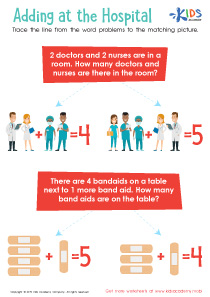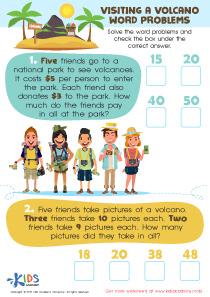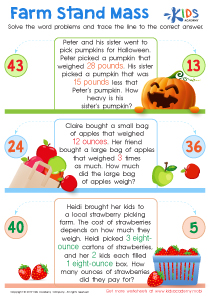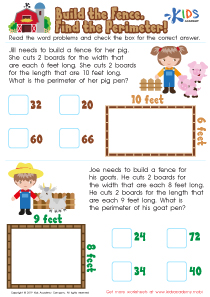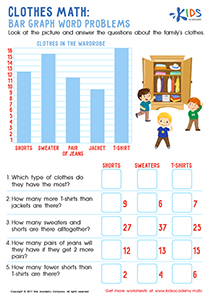Logical Reasoning Normal Two-step Word Problems Worksheets for Ages 3-9
3 filtered results
-
From - To
Enhance your child's logical reasoning skills with our engaging two-step word problems worksheets designed for ages 3-9. These worksheets lead young learners through fun, age-appropriate scenarios that require critical thinking and problem-solving. Each question encourages students to read carefully, identify relevant information, and apply mathematical concepts to find solutions. Perfect for home or classroom use, these resources help build foundational skills in math while fostering independent thinking. With a variety of challenges tailored to different learning levels, our two-step word problem worksheets are an excellent tool for developing essential reasoning abilities early on. Unlock your child's potential in a fun, interactive way!


Enrichment -2 Step Word Problems Worksheet


Solve the Problem: Trick–or–treating Worksheet


Addition and Subtraction: Word Problems Worksheet
Logical reasoning skills are foundational for young children, significantly impacting their future academic success and everyday problem-solving abilities. Normal two-step word problems, particularly designed for ages 3-9, encourage critical thinking and enable children to apply logic in various scenarios. Parents and teachers should emphasize these skills for several reasons.
Firstly, tackling two-step problems promotes cognitive development. Children learn to interpret information, identify relevant data, and sequence their thinking, which lays the groundwork for more complex mathematical concepts later on. This kind of structured problem-solving enhances their analytical abilities.
Secondly, developing logical reasoning through word problems nurtures perseverance. As children face challenges and learn to break problems down into manageable steps, they build resilience and confidence, essential traits for lifelong learning.
Moreover, these skills extend beyond mathematics. Becoming proficient at logical reasoning encourages better decision-making, sharper critical thinking, and improved communication abilities, all essential skills inside and outside the classroom.
Finally, engaging in activities that foster logical reasoning can strengthen the bond between parents, teachers, and children. Collaborative problem-solving experiences can create a positive learning environment, ultimately shaping children into inquisitive, confident learners ready to tackle real-world challenges.
 Assign to My Students
Assign to My Students



